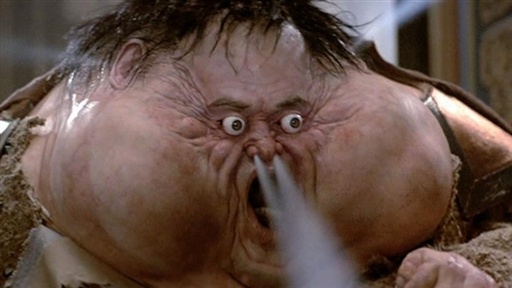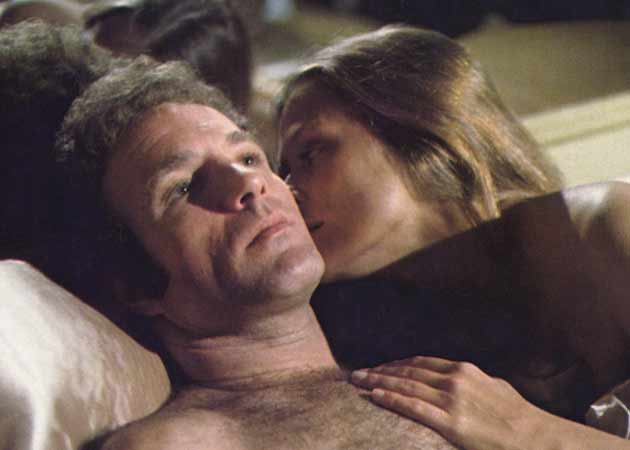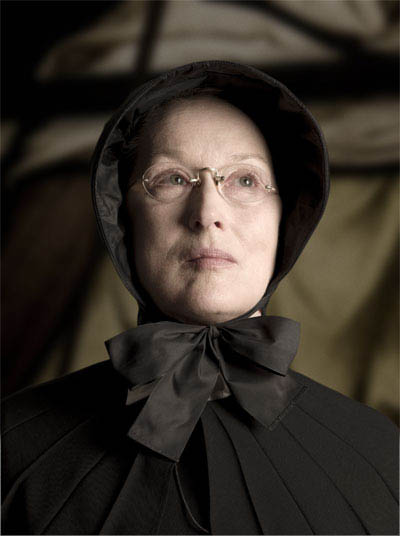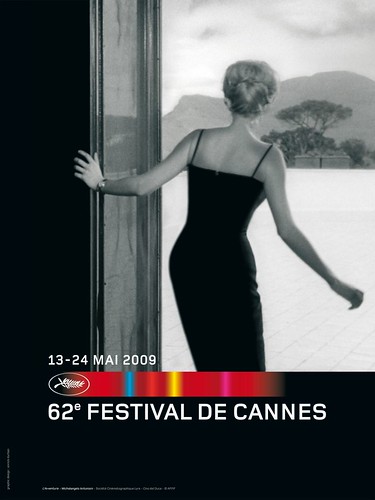The season's biggest money-maker was Transformers: Revenge of the Fallen, the follow-up to the 2007 box office smash. This time, Sam Witwicky (Shia LaBeouf) is off to college. His hopes of living a normal life are shattered when he discovers the "Matrix of Leadership," a powerful device used for destroying stars and worlds. Now the Decepticons are after him, and it's up to the Autobots to save his life and the world.

Transformers 2 is pretty much the same as the first movie, except even longer and, therefore, more boring. Besides some nifty special effects, Revenge of the Fallen is like a Decepticon; big and shiny but, in the end, soulless and empty.
Up was Pixar's latest fare. The tale of an old curmudgeon who ties balloons to his house and drifts away to the land of his dreams, Paradise Falls, dazzled critics and audiences alike. Like most of Pixar's films, Up has been hailed as an animated masterpiece. An early lock for a Best Animated Feature win at this year's Oscars, it's Pixar's second highest grossing film of all-time, just behind Finding Nemo.
It takes a really special film to make its audience tear up within the first ten minutes, but Up is a really special film. The characters, story and themes are really easy to get invested in. It's a great film that's sure to entertain kids as well as adults.

Unfortunately, the 3-D aspect of the film isn't so special. The gimmicky tool, which seems to have overtaken substance in favor of style in the case of so many animated features, is not even used to its full potential. Nothing seems to pop right out of the screen. One has to wonder if Pixar chose to make the film in 3-D just to keep up with the zeitgeist of multi-dimensional entertainment. The glasses are just an annoyance, and do little more than impair sight of the screen. There is always the option of seeing the film in 2-D. In fact, that would probably bring the film closer to perfection.
The latest "Harry Potter" film came as a welcome addition to the long-running (and huge grossing) family franchise. Whereas the last film in the series, The Order of the Phoenix, fell flat due to its lack of plot and focus on filler, The Half-Blood Prince finds Harry and the gang going on more fantastical adventures, and accomplishing tasks that feel like they'll actually mean something in the long run.
The Half-Blood Prince isn't the best in the series, however. Far from it. That title still belongs to 2004's Harry Potter and the Prisoner of Azkaban. That film was the perfect blend of fantasy and reality; fantastical places, real characters. Of course, anyone who has seen the other films will need to see The Half-Blood Prince in order to be set up for the last two films in the series. It's a wonderful time at the movies; a little slice of magic any filmgoer would be doing themselves a disservice to miss.
The last huge film of the summer would have to be District 9, a part-mockumentary, part-action flick about what might happen if aliens came to Earth and lived in government-supervised slums in South Africa. A fascinating premise, and one that works about one-third of the time. That one-third comes at the beginning of the film. For that half-hour, District 9 is a masterpiece, a creative, brilliant study of human/alien interaction, and a biting metaphor for the rampantly hate-fueled race relations between South Africans and their government officials.

Then the film takes a turn for the worse. It turns itself into a run-of-the-mill action movie and never looks back. It starts to take itself less seriously, although that type of self-depreciation is unwarranted. It's an odd and unnatural change, and a shameful one for a film whose premise and first half hour are so intriguing.
With that being said, however, District 9 is an interesting sci-fi popcorn flick, though it could have been so much more.
Like always, there were some diamonds in the rough of the summer movie season. Here's to hoping the rest of the year shines a bit more.
























 Ken Loach is no stranger to Cannes. In 2006, his The Wind That Shakes the Barley was awarded the festival’s most prestigious prize, the Palme d’Or. He’s looking to nab the award again this year with Looking For Eric, the tale of a troubled soccer fan who receives some life help from his idle, the famed French soccer player Eric Cantona. Although the plot sounds a bit high-concept, director Loach is known for his realism and natural characters. If anyone can ground the film in reality, it’s him.
Ken Loach is no stranger to Cannes. In 2006, his The Wind That Shakes the Barley was awarded the festival’s most prestigious prize, the Palme d’Or. He’s looking to nab the award again this year with Looking For Eric, the tale of a troubled soccer fan who receives some life help from his idle, the famed French soccer player Eric Cantona. Although the plot sounds a bit high-concept, director Loach is known for his realism and natural characters. If anyone can ground the film in reality, it’s him.








